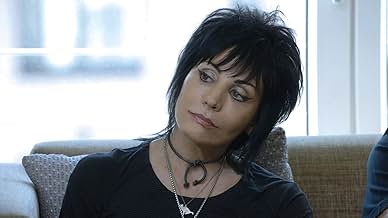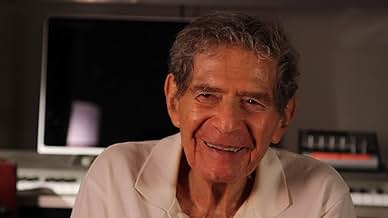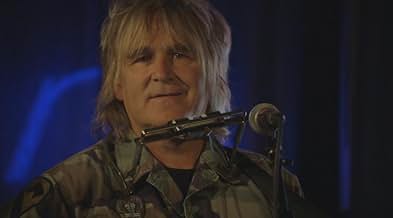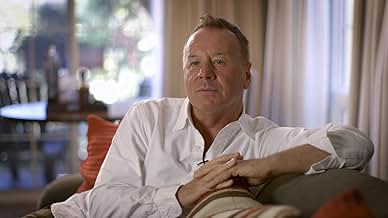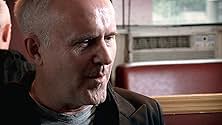अपनी भाषा में प्लॉट जोड़ेंIn 1982, a small radio station battles to bring the New Wave to America.In 1982, a small radio station battles to bring the New Wave to America.In 1982, a small radio station battles to bring the New Wave to America.
M. King Adkins
- Self
- (as Dr. M. King Adkins)
Pete Byrne
- Self - Lead Singer, Naked Eyes
- (as Peter Byrne)
फ़ीचर्ड समीक्षाएं
Something that bothered me when I watched this was that there was no mention at all of the station that immediately followed LIR on the airwave. The wikipedia page basically lists them both as one entity The movie producers clearly chose to ignore the reincarnation of the station, which I didn't mind if they hadn't done it without making a single mention of the WDRE station that succeeded LIR. To leave it out without a mention, even a sentence in the epilogue, makes it seem pretty obvious that they went far out of their way not to mention the later station.
At some point the new station took the old LIR moniker, the movie could have helped clear up the confusion about the call letters by explaining what happened with the call letters over time, but by leaving it out they only added to it.
At some point the new station took the old LIR moniker, the movie could have helped clear up the confusion about the call letters by explaining what happened with the call letters over time, but by leaving it out they only added to it.
WLIR, founded in 1959, was the first FM radio station in Long Island, broadcasting mainly showtunes and jazz-pop. In the '70s, WLIR changed their format to Southern and progressive rock, but in 1982 became an underground phenomenon by being the first radio station in the country to play New Wave (mostly coming out of the UK) and post-punk music (in other words, exchanging the Allman Brothers and Blue Öyster Cult for Duran Duran and U2). Thumbing their nose at US record labels--who usually dictated to radio stations what they should be playing--the station became home to a lot of European music acts who were big in their home countries but brand new to Americans. In the days before the internet, radio "found" the new music/tomorrow's hits (for instance, WLIR broke Frankie Goes to Hollywood's "Relax" six months before the rest of the US heard it), and the gratitude from the musicians--many of whom are interviewed here--is genuine and joyous. Something different, to be sure, and very entertaining for music buffs. *** from ****
I got to see Dare to Be Different at a film festival and it was a blast! The sound mix was so good and the music selection so right on that I was dancing in my seat the entire time. It felt as if the entire audience was having a shared musical experience of 80s music and memories. Even though this is the music of my youth, I didn't know that much about the artists who created the 80s sound. It was very engaging to hear artists, now in their 50s and 60s, riff about their early work, their inspirations, and how the era influenced their music and message. The story of the small, rogue, radio station that played this music was an entertaining subplot. Hearing the DJs remember moments when famous artists "hung out" at WLIR or when they literally had to go to the airport to pick up record imports gave the documentary authenticity. I recommend this documentary anyone who loves 80s music.
I know for sure that 2 college radio stations in the Boston area, WERS and WMBR, and 2 commercial stations - WBCN in Boston and KROQ in Los Angeles - were among various American radio stations that turned people on to many of the bands that WLIR claimed to have been "the first" to, and by several years. I was annoyed by how DJ's and staff in the film patted themselves on the back in taking such credit. WLIR changed format in 1982. U2's first album was released in the US 2 years earlier and was played at all the stations cited. That's just one example. Sure, WLIR helped expose the music which generated album sales, but don't claim something that is not true. It diminishes the legitimacy of the documentary. I cringed watching it. The listeners and staff obviously dug the commercial alternative format and the filmmaker shows that. I did enjoy seeing musicians that I liked remembering those days. Overall, great that 'LIR dared to be different but don't make false claims that you were the first, etc. And nobody likes a braggart anyway.
The music that moved me during the best years of my life. The insight and history of the performers and the songs had me spellbound.
क्या आपको पता है
- भाव
Michael Pagnotta: It was a movement in technology. And the difference between what Vince Clarke or Martin Gore, as opposed to what Keith Emerson could do, was completely different. The battery of keyboards that Wakeman and Emerson had to have on stage, I was the biggest Yes and the biggest ELP fan, so I love the sound of the Moog synthesizer. But, that was not a portable situation.
- साउंडट्रैकMy Way
(Comme d'Habitude)
Music by Claude François and Jacques Revaux
French lyrics by Gilles Thibaut
English lyrics by Paul Anka
Performed by Sid Vicious
टॉप पसंद
रेटिंग देने के लिए साइन-इन करें और वैयक्तिकृत सुझावों के लिए वॉचलिस्ट करें
विवरण
- रिलीज़ की तारीख़
- कंट्री ऑफ़ ओरिजिन
- आधिकारिक साइट
- भाषा
- इस रूप में भी जाना जाता है
- Посмей быть другим
- फ़िल्माने की जगहें
- लॉस एंजेल्स, कैलिफोर्निया, संयुक्त राज्य अमेरिका(on location)
- उत्पादन कंपनियां
- IMDbPro पर और कंपनी क्रेडिट देखें
- चलने की अवधि
- 1 घं 35 मि(95 min)
- रंग
इस पेज में योगदान दें
किसी बदलाव का सुझाव दें या अनुपलब्ध कॉन्टेंट जोड़ें


